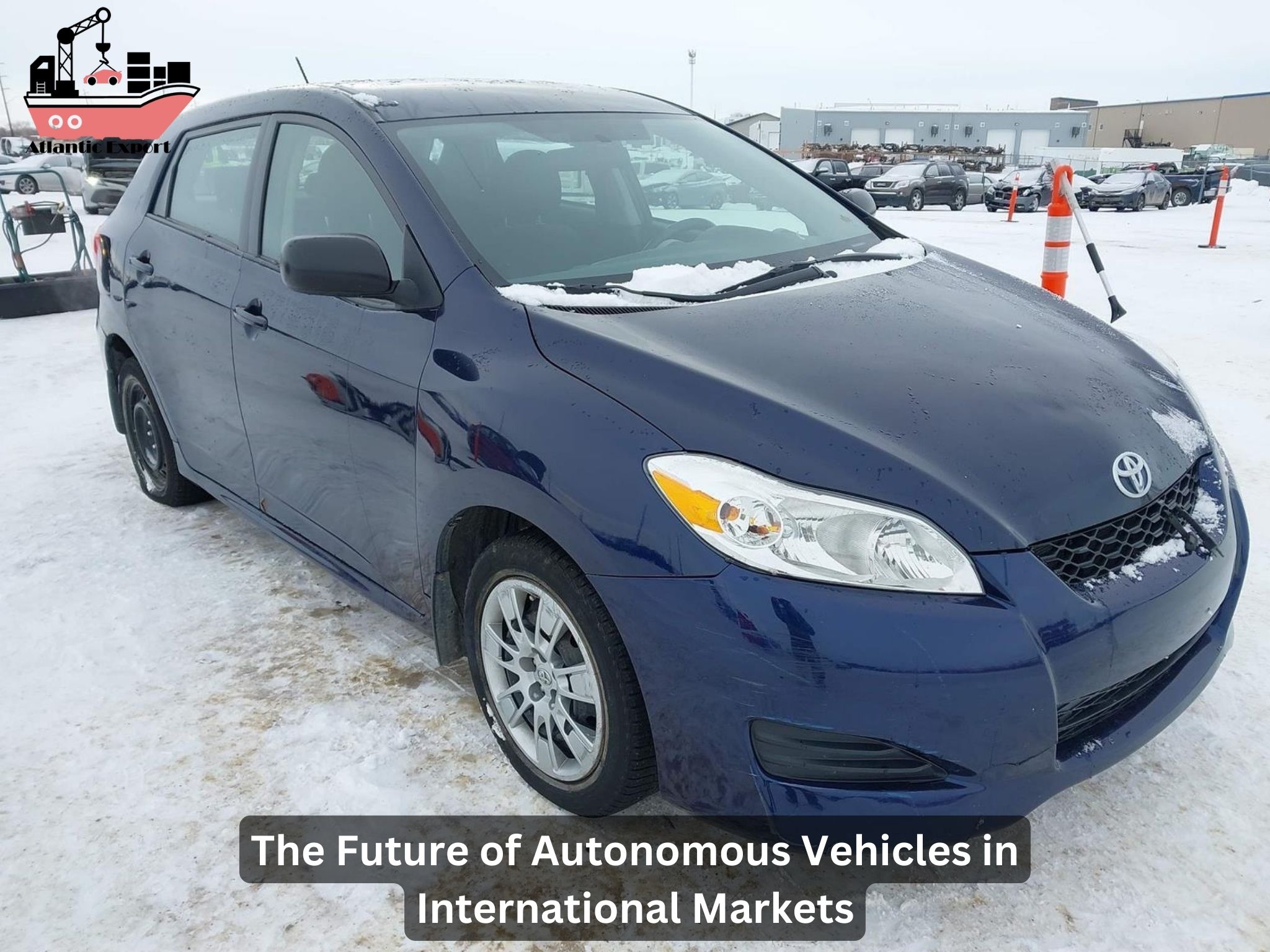The autonomous vehicles market is rapidly evolving, with advanced technologies paving the way for transformative changes in global transportation systems. As major industry players push boundaries, the growth trajectory for autonomous vehicles (AVs) has become a focal point of research, innovation, and strategic investments. This comprehensive article delves into the future of self-driving cars in international markets, exploring key trends, challenges, opportunities, and their implications for the automotive industry.
Market Overview and Growth Trends
The Rise of Autonomous Mobility
The adoption of autonomous vehicles represents a paradigm shift in the automotive industry, driven by innovations in artificial intelligence (AI), advanced driver assistance systems (ADAS), and autonomous technologies. Market reports project substantial growth, with a Compound Annual Growth Rate (CAGR) exceeding 20% during the forecast period from 2023 to 2030. In 2023 alone, the global autonomous vehicles market size was valued at several billion U.S. dollars, signaling robust demand for autonomous mobility solutions.
Key regions such as North America, Asia Pacific, and Europe are witnessing accelerated adoption, with significant contributions from passenger cars and commercial vehicles. Countries like the United States and China dominate market share, owing to technological advancements, strong consumer demand, and supportive government policies.
Technological Innovations Driving Market Growth
Artificial Intelligence and Machine Learning
The integration of AI and machine learning is revolutionizing autonomous driving. These technologies enable self-driving cars to process real-time road and traffic data, enhancing safety and efficiency. Companies like Waymo and Cruise are at the forefront of leveraging AI-driven solutions, pushing the boundaries of what autonomous vehicles can achieve.
ADAS and Sensor Technologies
The deployment of cutting-edge ADAS is pivotal to achieving full autonomy. Key components such as LiDAR, radar, and cameras enhance the safety systems of AVs by providing real-time environmental mapping and object detection. These systems are crucial for advancing autonomous driving levels, from basic driver assistance to complete autonomy (Level 5).
Regional Insights: North America, Asia Pacific, and Beyond
North America: A Leader in Autonomous Solutions
The United States leads the global AV market, fueled by investments from Ford Motor Company, Tesla, and General Motors. The region benefits from a favorable ecosystem of autonomous driving technologies, extensive research, and consumer acceptance. Urban centers like San Francisco are testing grounds for robotaxis and other innovative driverless solutions.
Asia Pacific: A Hub for Innovation
Countries such as China, Japan, and South Korea are emerging as critical markets for autonomous vehicle development. With robust manufacturing capabilities, government-backed initiatives, and rising demand for electric vehicles, the Asia Pacific region is expected to witness exponential growth.
Europe: Advancing Mobility Solutions
Europe’s focus on sustainable transportation aligns with the growth of autonomous vehicles. The region emphasizes safety and innovation, with contributions from major automotive companies in Germany, France, and the United Kingdom.
Key Players and Competitive Landscape
The autonomous vehicles industry is highly competitive, with key players including:
- Waymo
- Tesla
- Ford Motor Company
- Cruise
- BMW
- Audi
- NVIDIA
These companies invest heavily in R&D, collaborating with technology firms and governments to enhance autonomous driving systems and expand their market share.
Challenges Facing Autonomous Vehicles
Regulatory Hurdles
The lack of standardized regulations across international markets remains a significant challenge. Governments must establish clear frameworks to address safety, liability, and ethical concerns surrounding driverless cars.
Consumer Trust and Acceptance
Building consumer confidence in self-driving vehicles is critical. Concerns regarding road safety, cybersecurity, and reliability need to be addressed through public awareness and rigorous testing.
Infrastructure Development
The success of autonomous vehicles depends on the availability of smart infrastructure. Governments and private entities must invest in intelligent transportation systems, including connected roadways and traffic management technologies.
Future Outlook: Opportunities and Predictions
Integration with Electric Vehicles
The convergence of autonomous driving with electric vehicle technology presents a unique opportunity for sustainable growth. Electric autonomous vehicles are expected to dominate the future car market, reducing emissions and operational costs.
Expansion of Remote Driving Services
Remote-driving services are gaining traction, offering new avenues for revenue generation. These services are particularly useful in logistics, where remote-operated self-driving vehicles optimize delivery processes.
Market Size and Revenue Growth
The global autonomous vehicles market is forecast to reach unprecedented levels, with revenues surpassing hundreds of billions of U.S. dollars by 2030. As more players enter the field, the competition will drive innovation and cost-efficiency.
How AtlanticExport Supports the Autonomous Vehicle Industry
At AtlanticExport, we understand the dynamic nature of the autonomous vehicles industry. Our expertise lies in connecting businesses with cutting-edge solutions, helping clients navigate the complexities of international markets. Whether you’re exploring opportunities in North America, Asia Pacific, or Europe, AtlanticExport provides the resources and insights to drive your success in the evolving landscape of self-driving cars.
Conclusion
The future of autonomous vehicles holds immense promise, with transformative potential for global transportation. As the industry progresses, collaboration among stakeholders, advancements in autonomous technologies, and strategic investments will define the next decade of growth. By addressing challenges and leveraging opportunities, the autonomous vehicle market is poised to revolutionize mobility, safety, and efficiency worldwide.
FAQs
1. What are autonomous vehicles?
Autonomous vehicles are self-driving cars equipped with technologies like AI, sensors, and ADAS, enabling them to operate without human intervention.
2. Which regions are leading the autonomous vehicles market?
North America, Asia Pacific, and Europe are the top regions, with significant contributions from countries like the United States, China, and Germany.
3. What are the key challenges for autonomous vehicles?
Major challenges include regulatory hurdles, consumer trust, and infrastructure development to support autonomous driving systems.
4. How is AtlanticExport involved in the autonomous vehicle industry?
AtlanticExport connects businesses with innovative solutions in the autonomous vehicles market, offering insights and resources for success in international markets.
5. What is the future of autonomous vehicles?
The future includes widespread adoption of electric self-driving cars, integration of remote-driving services, and significant growth in market size and revenues.

Leave a Reply